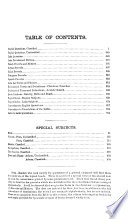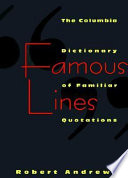 | John Dryden - 1882 - 320 pages
...eat, efficiet ; necjue Diffinget, infectumquo reddet, Quod fugiena semel hora vex it. — Od. iii. 29. Happy the man, and happy he alone, He who can call to-day his own, He who, secure within, can say To-morrow do thy worst, for I have lived to-day. Be fair or foul, or rain or... | |
 | Epes Sargent - American poetry - 1882 - 1002 pages
...are from their old foundations torn ; And troods, made thin with winds, their scattered honors mourn. Happy the man, and happy he alone, He who can call to-day his own ; He who, secure within, can say, To-morrow, do thy worst, for I have lived to-day! Be fair or foul, or rain... | |
 | Quotations, English - 1882 - 1434 pages
...nothing to bestow. From our own selves our j And that dear hut, our home. a. COTTON— The Fireside. shed libations on his shrine! k. MoosK—OdesofAnacreon. Ode LX.V1II. All secure within, can say. To-morrow do thy worst, for I have lived today. 1. DBYDEN— Imitation of (lie... | |
 | Familiar quotations - 1883 - 942 pages
...can gently steer From grave to light, from pleasant to severe.1 The Art of Poetry. Canto i. Line 75. Happy the man, and happy he alone, He who can call to-day his own ; He who, secure within, can say, To-morrow, do thy worst, for I have lived to-day." Imitation of Horace. Book... | |
 | Locomotive engineers - 1876 - 590 pages
...believer in the advice of his countryman, Dryden, concerning the " enjoyment of the present hour." "Happy the man, and happy he alone, He who can call to-day his own, He who, secure within, can say, To-morrow do thy worst, for I have lived to-day. Be fair, or foul, or rain... | |
 | David Armstrong - History - 1989 - 196 pages
...stream, Is sometimes high, and sometimes low, A quiet ebb, or a tempestuous flow, And always in extreme. Happy the man, and happy he alone, He, who can call today his own; He who, secure within, can say, "To-morrow do thy worst, for I have lived today; Be fair or foul, or rain,... | |
 | Robert Andrews - Reference - 1993 - 1214 pages
...CK CHESTERTON (1 874-1936), Brilish auihor. Л Miscellany of Men, "The Conlenied Man" 1 1 91 2]. 5 Happy the man, and happy he alone, He who can call today his own; He who, secure within, can say. Tomorrow, do thy worst, for I have lived today. JOHN DRYDEN (1631-1 700), English... | |
 | Donald A. Low - Literary Criticism - 1974 - 474 pages
...potctis sui Laetusque deget, cui licet in diem Dixisse vixi.1 Or, in the spirited version of Dryden, Happy the man, and happy he alone, He who can call to-day his own, He who, secure within, can say Tomorrow do thy worst, — for I have liv'd to-day. Sentiments akin to that... | |
 | Helen Bevington - Biography & Autobiography - 1996 - 238 pages
...laughter over tears, advocating "Short views, for God's sake, short views." Horace defined a happy man: Happy the man, and happy he alone, He, who can call today his own: He who, secure within, can say, Tomorrow do thy worst, for I have lived today. Be fair, or foul, or rain, or... | |
 | Robert Andrews - Language Arts & Disciplines - 1997 - 666 pages
...world! ROBERT BROWNING, (1812-1889) British poet. Pippa Passes, pt. 1, "Morning" (1841). Pippa's song. 3 Happy the man, and happy he alone, He who can call today his own; He who, secure within, can say, Tomorrow, do thy worst, for I have lived today. JOHN DRYDEN, (1631-1700) British... | |
| |